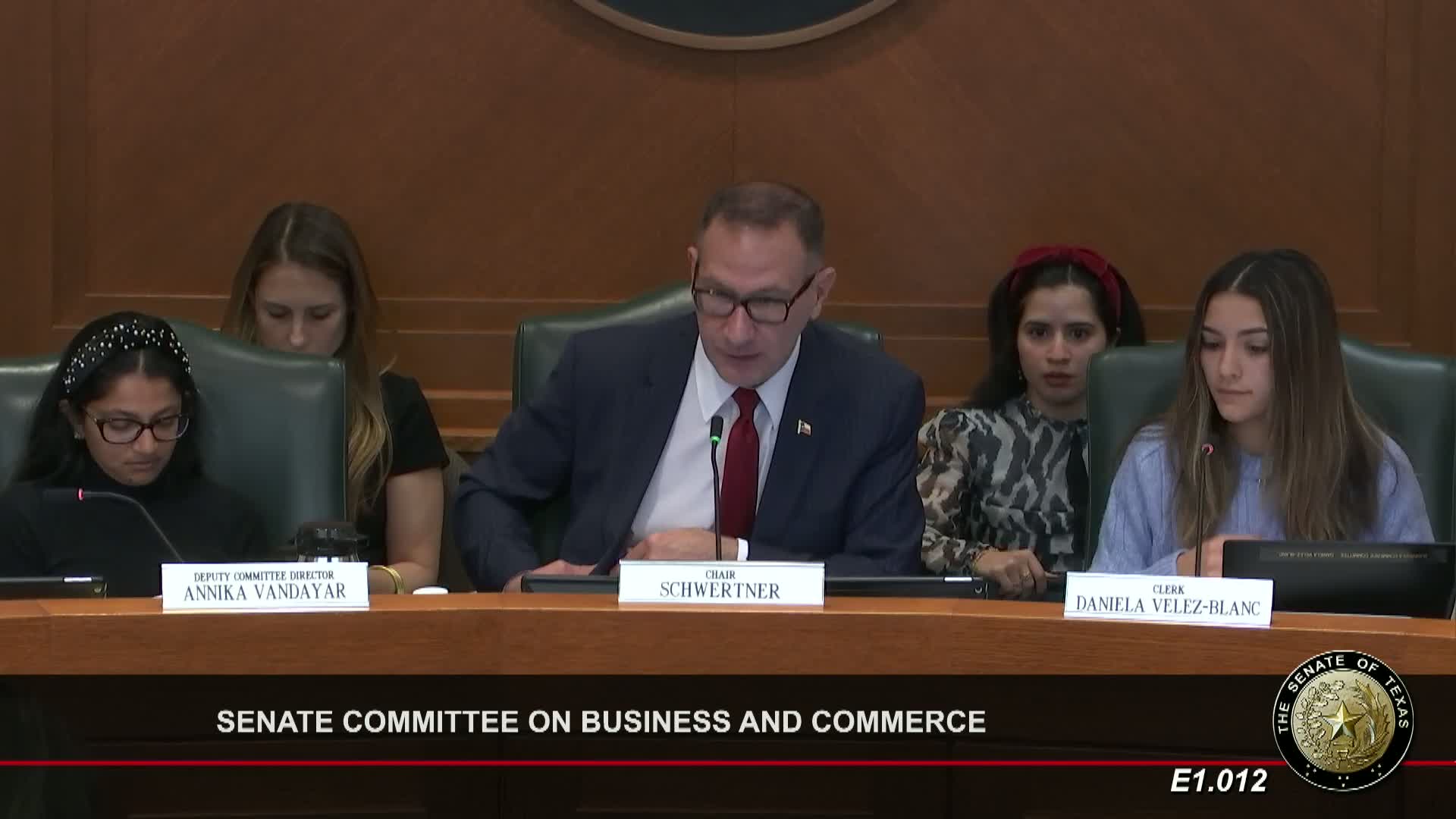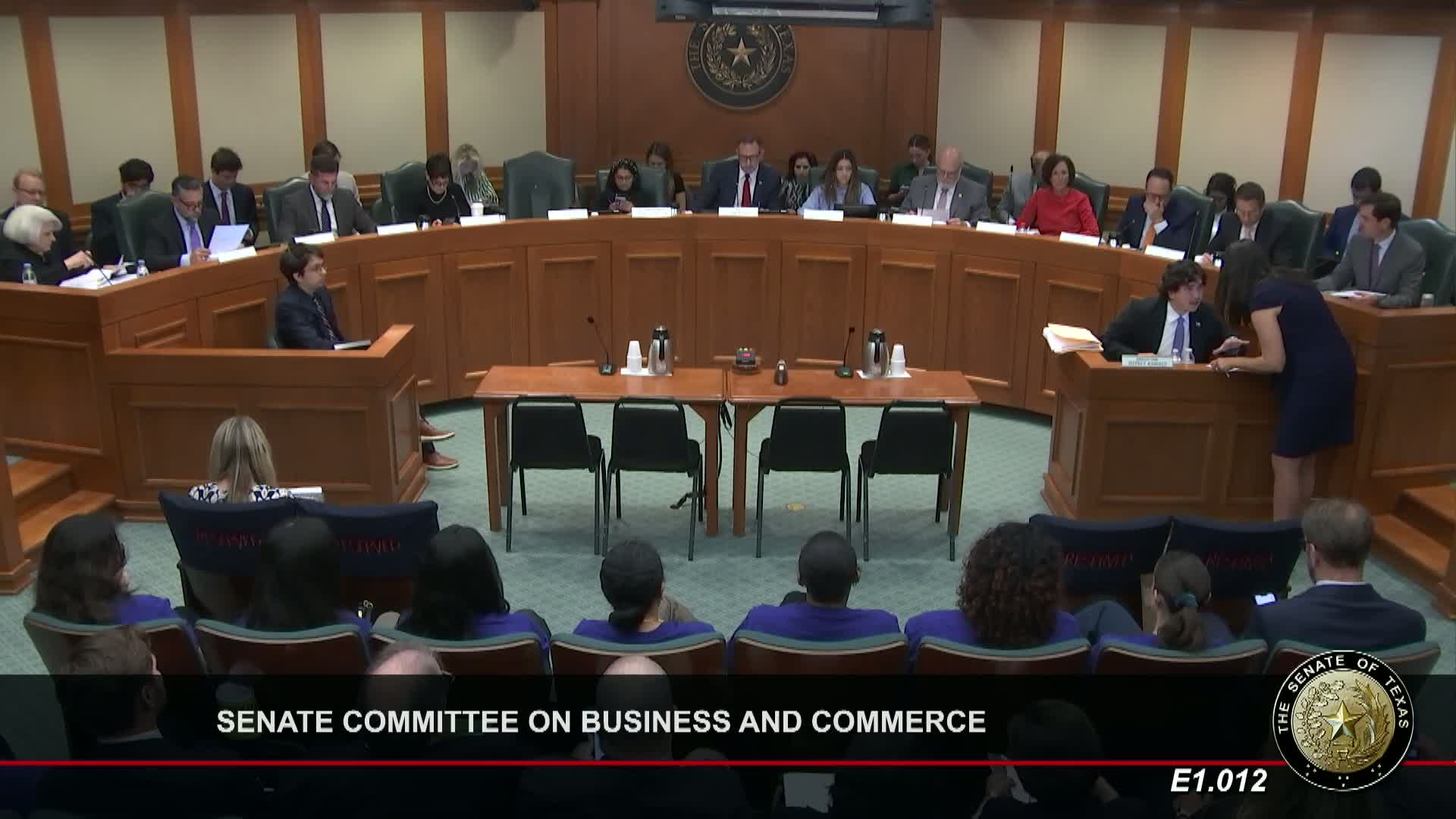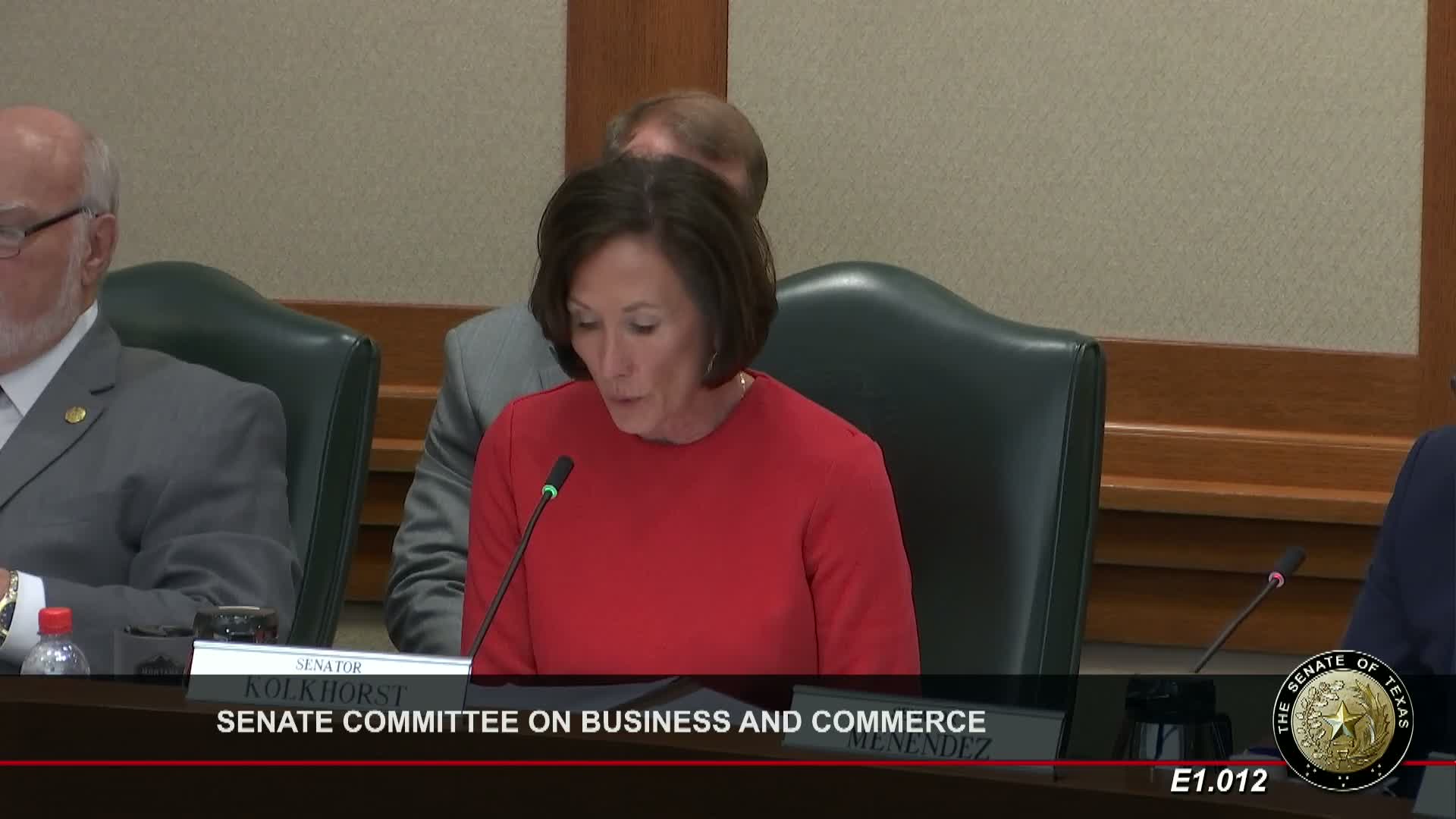Article not found
This article is no longer available. But don't worry—we've gathered other articles that discuss the same topic.

TDI commissioner outlines data, consumer protections as committee weighs agency restructure and flex rate filing

Committee votes: roll calls on committee substitutes and favorable reports (May 20, 2025)

